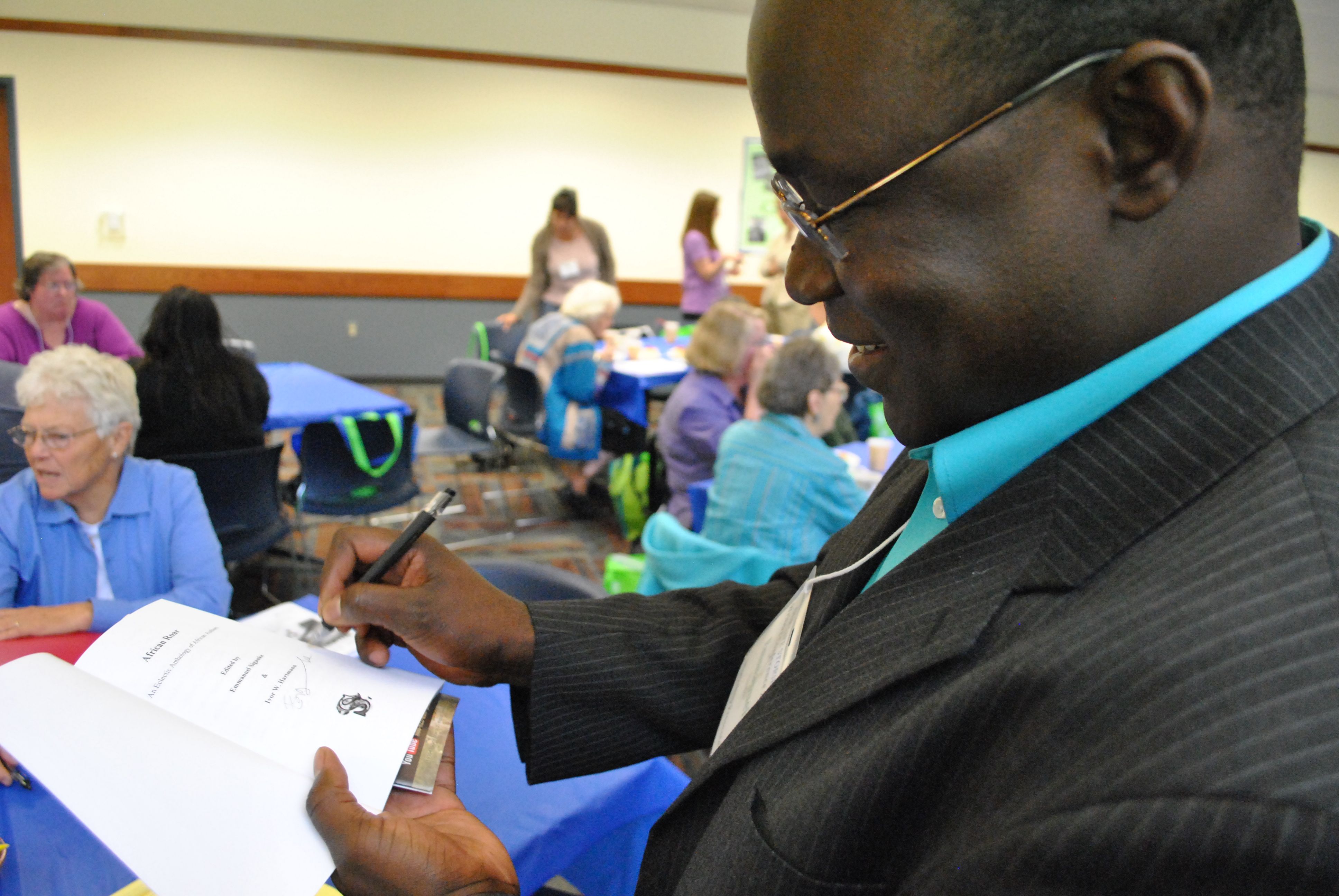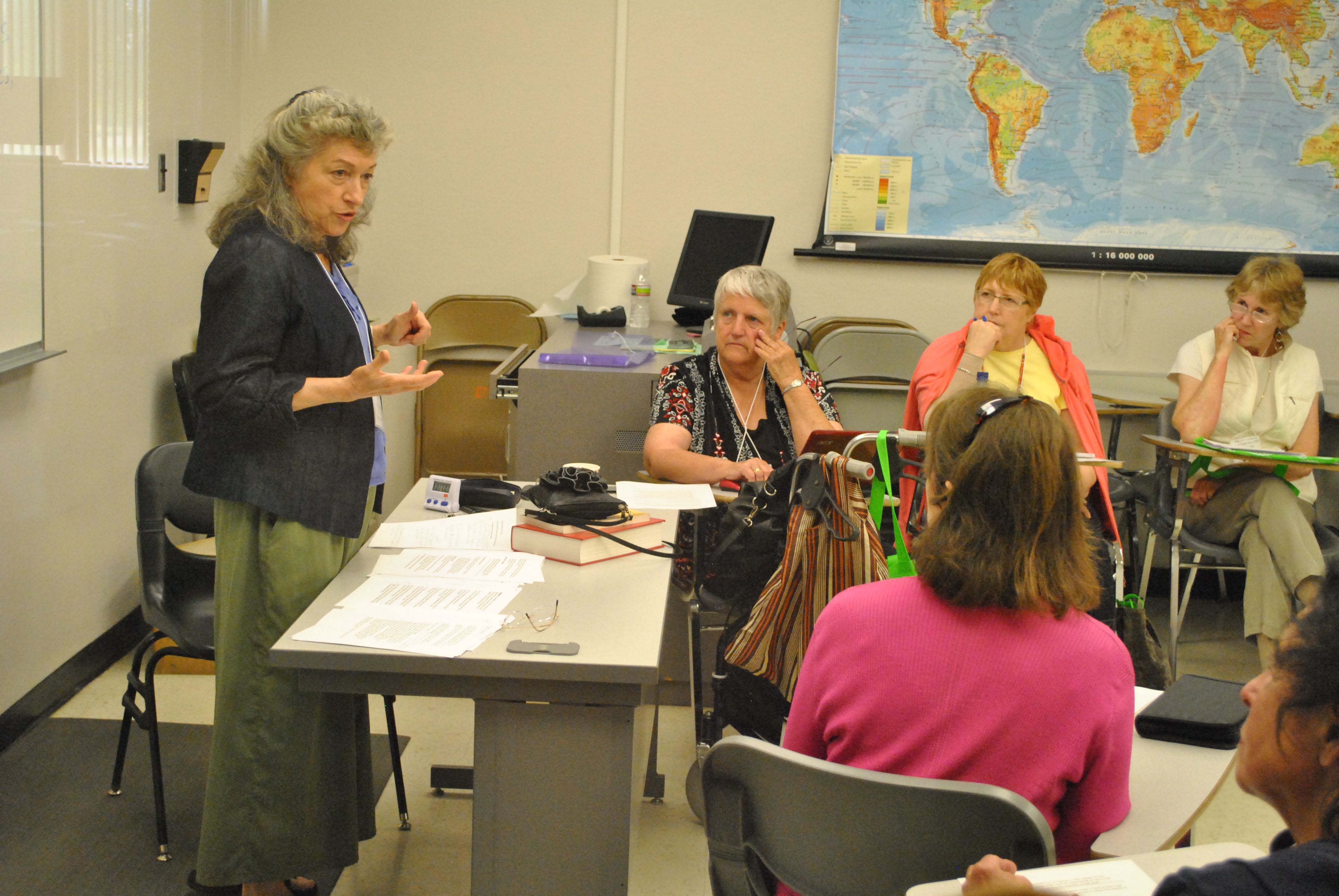The Earnings of Self-Published Authors, University of Missouri Press Is Closing, and More
A comprehensive survey of self-published authors reveals surprising findings, today's writers feel less compelled to look to the past, and today is Towel Day.
Jump to navigation Skip to content
A comprehensive survey of self-published authors reveals surprising findings, today's writers feel less compelled to look to the past, and today is Towel Day.
"When you start out on a career in the arts, you have no idea what you're doing. This is great," says bestselling author Neil Gaiman in his commencement address to the class of 2012 at the University of the Arts in Philadelphia. "People who know what they're doing know the rules and they know what is possible and what is impossible. You do not. And you should not. The rules on what is possible and impossible in the arts were made by people who had not tested the bounds of the possible by going beyond them. And you can."
The fifth annual Our Life Stories Writers’ Conference took place April 28 at Cosumnes River College in Sacramento. This one-day conference, co-sponsored by the Ethel Hart Senior Center and Cosumnes River College, and supported by P&W, is designed for seniors and others interested in documenting their life stories. Project directors Alicia Black and Bubbles Miguel describe the event.
T he celebration began the evening of Friday, April 27, when more than eighty people gathered at the Hart Senior Center in downtown Sacramento for a pre-conference reception. Attendees sipped port wine and dunked fresh fruit into a multi-tiered chocolate fountain while mingling with conference faculty and fellow participants. Faculty greeted participants, signed books, and read their own work for the crowd.
he celebration began the evening of Friday, April 27, when more than eighty people gathered at the Hart Senior Center in downtown Sacramento for a pre-conference reception. Attendees sipped port wine and dunked fresh fruit into a multi-tiered chocolate fountain while mingling with conference faculty and fellow participants. Faculty greeted participants, signed books, and read their own work for the crowd.
Early the following morning, more than 150 attendees and volunteers streamed past manicured lawns and flowering trees on the Cosumnes River College (CRC) campus to enter the conference room. Allegra Silberstein, poet laureate of the nearby town of Davis, kicked the day off with a reading. Jennifer Bayse Sander, a New York Times bestselling author, publisher, and former Random House senior editor, delivered the keynote address.
Participants dispersed to a nearby building to attend their selected morning workshops. The seven workshop offerings gave the writers an opportunity to learn about autobiographical narrative, poetry, memoir, and publishing. The workshops were led by a culturally diverse group of nationally and locally recognized writers. Offerings included “Painting with words: creating atmosphere in settings” by Kerstin Feindert, “Your life as a list of ten” by Susan Kelly-DeWitt, and “Who said that? Voice and point of view in fiction” by Kakwasi Somadhi.  After a catered Italian lunch accompanied by an enticing slice of strawberry cheesecake, Ginny McReynolds, CRC Dean of Humanities and Social Science, gave a keynote talk about the importance of writing on a regular basis. Once the afternoon workshops concluded, participants returned to submit their evaluations for prizes donated by local restaurants, private individuals, and a local winery. As attendees departed, many reported that they had met new people and enjoyed the chance to network and eat great food. Many promised to return next year, as their life stories continue to unfold.
After a catered Italian lunch accompanied by an enticing slice of strawberry cheesecake, Ginny McReynolds, CRC Dean of Humanities and Social Science, gave a keynote talk about the importance of writing on a regular basis. Once the afternoon workshops concluded, participants returned to submit their evaluations for prizes donated by local restaurants, private individuals, and a local winery. As attendees departed, many reported that they had met new people and enjoyed the chance to network and eat great food. Many promised to return next year, as their life stories continue to unfold.
Above: Emmanuel Sigauke signs a book. Left: Susan Kelly-DeWitt (standing) leads a workshop. Credit: Martin McIllroy.
Major support for Readings/Workshops in California is provided by The James Irvine Foundation. Additional support comes from the Friends of Poets & Writers.
After more than a year of negotiations, a group of agents at International Creative Management (ICM) successfully reached an agreement to purchase a majority ownership of the company from the private-equity firm Rizvi Traverse Management LLC, and longtime ICM chief executive officer Jeffrey Berg. The Hollywood talent agency will now be known as ICM Partners and is controlled by a partnership of twenty-nine agents and executives from its film, television, publishing, and touring departments. The financial details of the agreement weren't revealed.
ICM was formed in 1975 through the merger of International Famous Agency and Creative Management Associates (which were themselves formed by earlier mergers). Rizvi Traverse Management paid ICM's founding owners seventy million dollars for a majority interest in the agency in 2005, which allowed ICM to purchase the Broder Webb Chervin Silbermann literary agency in 2006. According to the Wall Street Journal, in recent years, there were grumblings among the agents that Rizvi, a Connecticut-based financial company, did not show significant interest in the agency.
In the publishing world, one of ICM's best-known agents is Amanda "Binky" Urban, who represents Charles Frazier, Mary Karr, Cormac McCarthy, Toni Morrison, Haruki Murakami, and Donna Tartt.
Earlier this week, just days out from the announcement of the 2012 Orange Prize for Fiction winner, news broke that the prize's namesake, telecommunications company Orange, will be ceasing its sponsorship after this year. The award, which honors women novelists and comes with a thirty-thousand-pound purse (approximately forty-seven thousand dollars), has been given annually since 1996.
Despite the dissolution of what by prize director Kate Mosse's estimate was a successful partnership—according to a quote from Mosse in the Huffington Post, over the years, the prize has afforded Orange "the equivalent of 17 million pounds in advertising revenue"—prize administrators are keeping an optimistic tone about the impact of the move. "This is the end of an era, but no major arts project should stand still," Mosse wrote in a letter on the prize website. "We are very much looking forward to developing the prize for the future and working with a new sponsor to ensure the prize grows and plays an even more significant part in the years to come."
According to Mosse, a number of potential "brand partners" are already in talks with the Prize for Fiction administrators.
Past winners of the prize, which, while based in the United Kingdom, has never been limited to U.K. authors, include American novelists Barbara Kingsolver, Ann Patchett, and Marilynne Robinson, Nigerian author Chimamanda Ngozi Adichie, and Canadian authors Anne Michaels and Carol Shields. This year's shortlist is comprised of titles by Americans Madeline Miller, Cynthia Ozick, and Patchett, Canadian author Esi Edugyan, Irish author Anne Enright, and British author Georgina Harding. The final recipient of the Orange Prize will be announced at a ceremony in London on May 30.
In the video below, the shortlist of this year's award is announced at the London Book Fair.
Amazon is taking steps to ban spam and non-exclusive content from its Kindle Store; tonight the New Yorker will publish a new story by Jennifer Egan via Twitter; the Guardian looks at T. S. Eliot's influence on contemporary songwriters, such as Arcade Fire, P. J. Harvey, and Radiohead; and other news.
"Now that I'm a grownup, I'm appalled to find out how much of my time is spent having unbelievably boring conversations," says satirical cartoonist Tim Kreider in this trailer for his new book of essays and cartoons, We Learn Nothing (Free Press), in which he turns his funny, brutally honest eye to the dark truths of the human condition.
Publishing-industry veteran Mike Shatzkin shares the letter he penned to the Department of Justice regarding its antitrust lawsuit; Dwight Garner examines the life and work of poet Richard Brautigan; author Amy Shearn recently discovered her grandmother kept a correspondence with Hemingway's second wife, the journalist Martha Gellhorn; and other news.
Amazon announced yesterday the three finalists for its fifth annual Breakthrough Novel Award in fiction. Along with two genre titles, Portland, Oregon, writer Brian Reeves's novel, A Chant of Love and Lamentation, was selected by editors at Penguin for the shortlist.
Reeves's story blends Hawaiian history—the author lived on the islands for a number of years—with fictional events that see the state moving toward regaining sovereignty. "This novel comes from my sincere hope that the people of Hawaii may someday soon reclaim what was once theirs," says the author in his bio note.
Also shortlisted were Alan Averill's The Beautiful Land, a "literary-flavored time-travel tale," in the words of literary agent and contest reviewer Donald Maass, and Charles Kelly's historical mystery, Grace Humiston and the Vanishing.
Registered customers of Amazon are now invited to vote on the winner of the novel competition, who will receive a publishing contract from Penguin and a fifteen-thousand-dollar advance against royalties. Voters can read a snippet from each book on the Amazon website or, if they have access to the Kindle, download an extended excerpt for free. The winner will be announced on June 16.
Amazon announced yesterday the three finalists for its Breakthrough Novel Award in fiction. Along with two genre titles, Portland, Oregon, writer Brian Reeves's novel, A Chant of Love and Lamentation, was selected by editors at Penguin for the shortlist.
Reeves's story blends Hawaiian history—the author lived on the islands for a number of years—with fictional events that see the state moving toward regaining sovereignty. "This novel comes from my sincere hope that the people of Hawaii may someday soon reclaim what was once theirs," says the author in his bio note.
Registered customers of Amazon are now invited to vote on the winner of the novel competition, who will receive a publishing contract from Penguin and a fifteen-thousand-dollar advance against royalties. Voters can read a snippet from each book on the Amazon website or, if they have access to the Kindle, download an extended excerpt for free. The winner will be announced on June 16.